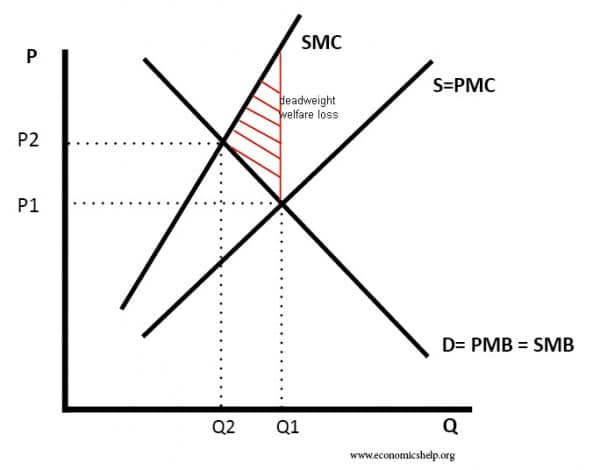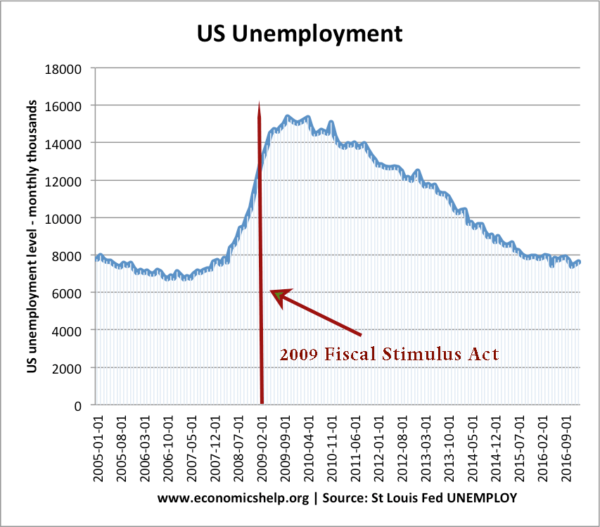Readers Question: Does government increases or decrease economic efficiency. Kindly explain as I have tried to look for the reasons.
This is an open-ended question, which raises many different issues. To some, on the political right, it is a simple matter of governments bad, markets good. Others are apt to see the government as a solution to many problems.
The only way to answer this question is to consider it from different angles.
Government-owned Industries (Nationalised Industries)
A powerful argument is that government-run industries have a tendency to be more inefficient. This is because:
- Government employers tend to lack a profit incentive. Therefore there is less incentive to cut costs, innovate and meet changing market demand. Arguably, you could point to certain privatised industries like Telecoms and electricity and point to efficiency gains, once the firm was privatised.
More at Arguments for Privatisation
Social Efficiency

There are few who would argue governments run an ordinary business more efficiently than private shareholders; but, what about industries like Rail, health or education? These are industries with positive externalities. E.g. good transport helps reduce congestion and improve the wider efficiency of the economy. If the rail industry is run by private enterprise, many lines would be closed because it is unprofitable. However, the external benefits may justify governments subsidising and running them.
With services like health care, ordinary profit motives are not as obvious. Do doctors need a profit motive to make the best decisions for their patients? Some argue the private health care system in the US encourages more expensive health care rather than the most efficient use of resources.
Market Failure
There are many more cases where markets fail to allocate resources efficiently. For example, firms with monopoly power can exploit consumers with higher prices. Government legislation to prevent monopoly power, e.g. preventing mergers, can help to keep markets competitive and prices more allocatively efficient.
However, there is never any guarantee governments will make the right decision. Perhaps they will prevent a merger, that would have led to significant economies of scale. However, in the case of monopolies, there is a strong possibility that government intervention will increase economic efficiency.
Macro Economics
Another controversial issue is the realm of macroeconomics. Some economists argue that governments cannot effectively influence the business cycle and are likely to make things worse rather than better. Others argue that in a recession, governments can play a decisive role in stimulating the economy, reducing unemployment and hence reducing the inefficiency of unemployment in the economy. For example, in 2009, US governments adopted a fiscal stimulus act to reduce unemployment and improve economic growth. More on government intervention in macro-economy
This is really just a short introduction to the topic. There are many other things you can consider such as:
- Does tax increase or decrease efficiency?
- What is the optimal level of government intervention?
- What is meant by efficiency?
- Can the pursuit of Economic efficiency conflict with other objectives such as equality and fairness?
- In practice, there are no simple answers. For example, some taxes can increase economic efficiency. It depends on how the tax is implemented.
Related

